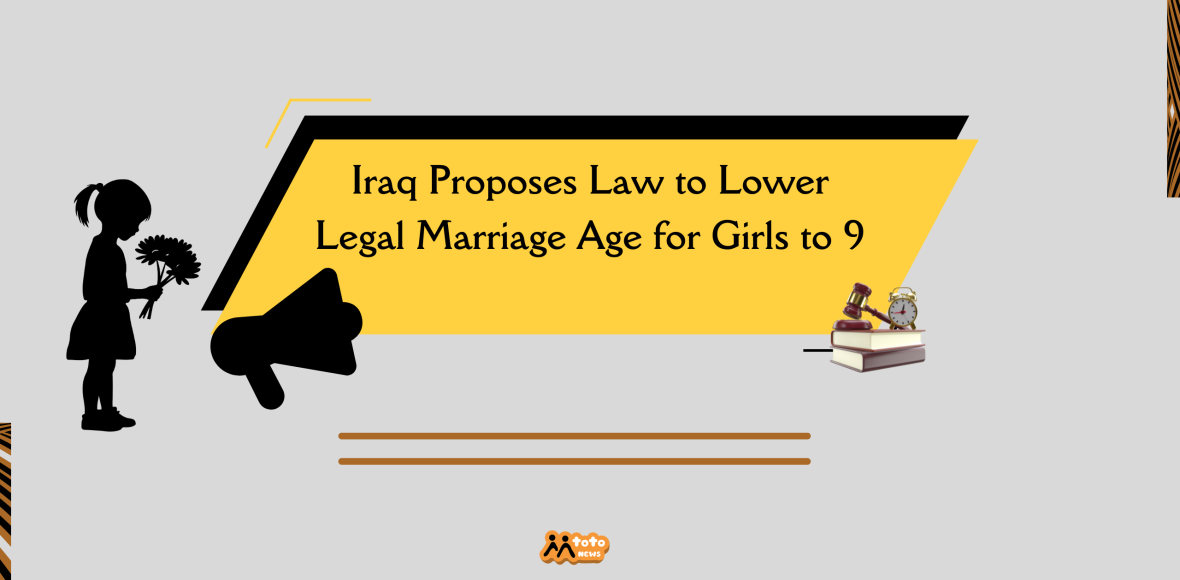
Iraq’s parliament has introduced a controversial bill that seeks to reduce the legal marriage age for girls to 9 years old, sparking outrage and concern across the country. The proposed legislation, put forward by the Iraq Justice Ministry, would amend the current Personal Status Law, which sets the minimum marriage age at 18.
If enacted, the bill would allow girls as young as 9 and boys as young as 15 to marry, raising alarms about the potential increase in child marriages and exploitation. Critics argue that this would roll back decades of progress on women’s rights and gender equality in Iraq.
The bill also proposes giving citizens the choice between religious authorities or the civil judiciary to handle family matters, a move that many fear could erode rights related to inheritance, divorce, and child custody.
Human rights organizations, women’s groups, and activists have strongly condemned the bill, warning that it would have devastating effects on young girls’ education, health, and future. They point out that child marriage leads to higher school dropout rates, early pregnancies, and a greater risk of domestic violence. According to UNICEF, 28% of girls in Iraq are already married before they turn 18.
“Passing this law would signify a step backwards for Iraq,” said Sarah Sanbar, a researcher at Human Rights Watch (HRW). Amal Kabashi of the Iraq Women’s Network echoed this sentiment, saying the bill “opens the door for increased male control over family issues” in an already conservative society.
The proposed changes were initially withdrawn in late July after facing significant opposition from lawmakers. However, the bill resurfaced during an August 4 session, backed by powerful Shia factions in parliament.
The bill represents a shift from the 1959 law, which shifted family law authority from religious leaders to the state judiciary. The new legislation would reintroduce the option to apply religious rules, primarily from Shia and Sunni Islam, but does not account for Iraq’s other religious or sectarian communities.
Supporters of the bill argue that it aims to align Iraq’s laws more closely with Islamic principles and protect young girls from “immoral relationships.” However, opponents counter that this rationale ignores the grim realities of child marriage.
By transferring marriage authority to religious figures, the amendment would “undermine the principle of equality under Iraqi law,” Sanbar of HRW added. It “could legalize the marriage of girls as young as nine, robbing countless girls of their futures.”
The fate of this proposed law remains uncertain, as several previous attempts to pass similar legislation have failed.
Cr: The Guardian

Leave a Reply